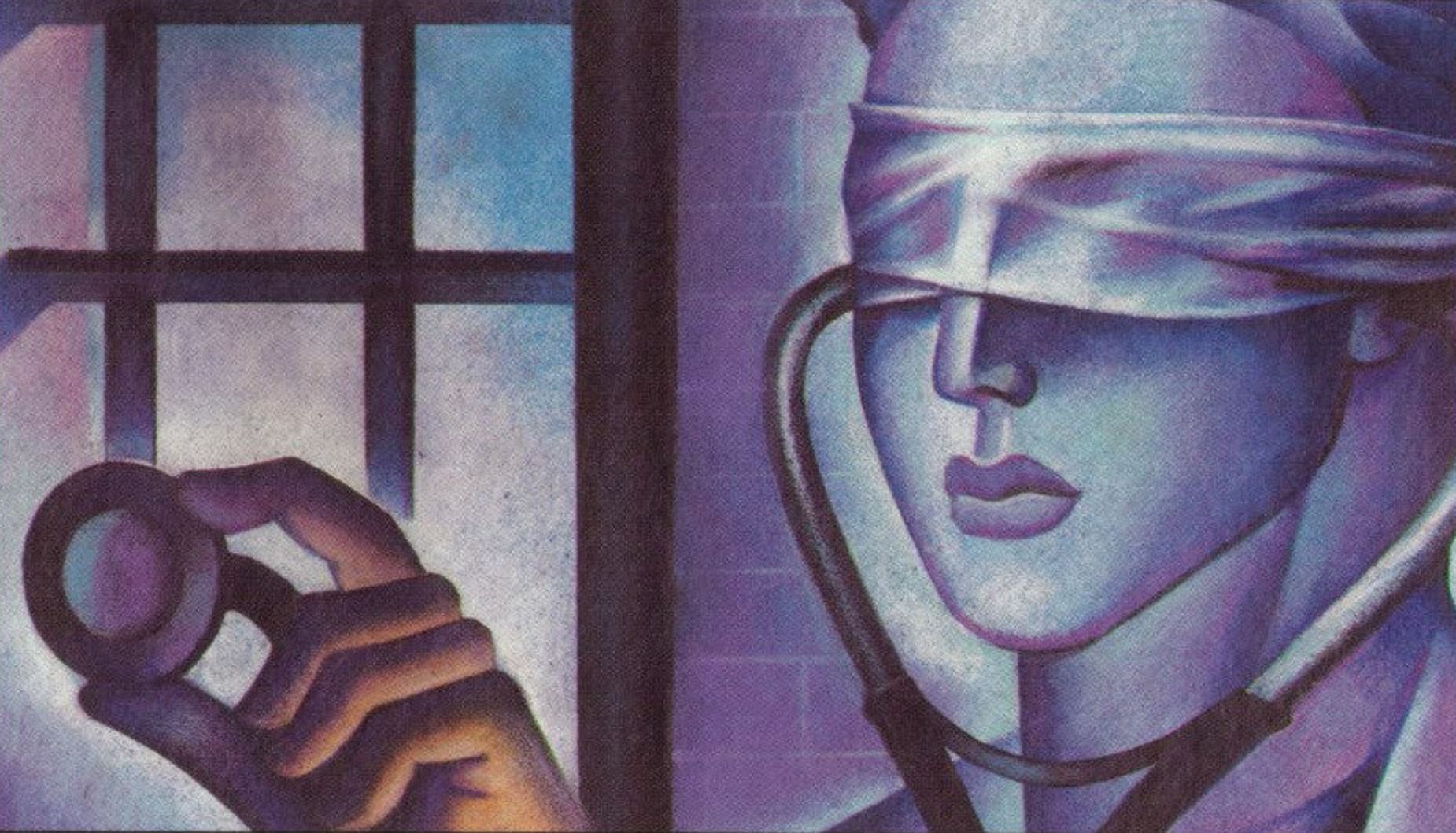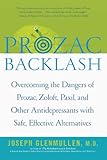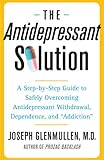22 Quotable Quotes About Psychiatric Pseudoscience
By Gary G. Kohls, MD, guest to Natural Blaze
Most of the following quotes come from the thorough, extended article entitled “Psychiatry: Science or Fraud?”
“All tyranny needs to gain a foothold is for people of good conscience to remain silent.” — Thomas Jefferson
“Bad men need nothing more to compass their ends than that good men should look on and do nothing.” –– John Stuart Mill
“Bad men need nothing more to compass their ends than that good men should look on and do nothing.” –– John Stuart Mill
“[The DSM] is the fabrication upon which psychiatry seeks acceptance by medicine in general. Insiders know it is more a political than scientific document. To its credit it says so, although its brief apologia is rarely noted… Some take it seriously, others more realistically. It is the way to get paid… The issue is what do the categories tell us? Do they in fact accurately represent the person with a problem? They don’t, and can’t, because there are no external validating criteria for psychiatric diagnoses. There is neither a blood test nor specific anatomic lesions for any major psychiatric disorder. So, where are we? [The American Psychiatric Association] as an organization has implicitly (sometimes explicitly as well) bought into a theoretical hoax. Is psychiatry a hoax—as practised today? Unfortunately, the answer is mostly yes.” – Loren Mosher, Clinical Professor of Psychiatry, and Chief of the Center for Studies of Schizophrenia in the (US) National Institute of Mental Health (NIMH, 1968–1980), and ex-American Psychiatric Association (APA) member
“Modern psychiatry has yet to convincingly prove the genetic/biologic cause of any single mental illness…Patients [have] been diagnosed with ‘chemical imbalances’ despite the fact that no test exists to support such a claim, and…there is no real conception of what a correct chemical ‘balance’ would look like.” — Dr. David Kaiser, Psychiatrist (US)
“While there has been “no shortage of alleged biochemical explanations for psychiatric conditions…not one has been proven. Quite the contrary. In every instance where such an imbalance was thought to have been found, it was later proven false … No claim for a gene for a psychiatric condition has stood the test of time, in spite of popular misinformation.” — Dr. Joseph Glenmullen, US psychiatrist, Harvard University Medical School and author of “Prozac Backlash”
“There is a great deal of scientific evidence that stimulants cause brain damage with long-term use, yet there is no evidence that these mental illnesses…exist.”…”Despite more than two hundred years of intensive research, no commonly diagnosed psychiatric disorders have proven to be either genetic or biological in origin, including schizophrenia, major depression, manic-depressive disorder, the various anxiety disorders, and childhood disorders such as attention-deficit hyperactivity. At present there are no known biochemical imbalances in the brain of typical psychiatric patients—until they are given psychiatric drugs.” — Dr. Peter Breggin, US Psychiatrist and author of many books on the subject of psychiatric fraud, including “Toxic Psychiatry”, “Your Drug May Be Your Problem”, “Brain Disabling Treatments in Psychiatry”, “Talking Back to Prozac”, etc
There’s actually in fact dozens of studies showing that there isn’t any measurable imbalance, so [for example] psychiatrists will explain to patients all the time, “this is just like diabetes, in diabetes you have low insulin, we have to readjust the insulin level, in depression you have low serotonin, we have to readjust the serotonin level”, but actually we have already proven that there is nothing wrong with the serotonin levels, it’s completely a myth disproven by our own evidence.” — Dr. Colin Ross, Psychiatrist, President of the International Society for the Study of Trauma and Dissociation (Canada)
“Within a few months of starting psychiatry, I was realizing there was something seriously wrong with it. It was immediately obvious to me that the psychiatrists were making claims…which simply were not justified in biology. But if you stand up and say that: ‘what you are doing, ladies and gentleman, is not science, it’s pseudoscience’, then you are challenging what’s holding the whole profession together…I think secretly [psychiatrists] know, deep inside, that if anybody criticizes this or examines this too closely it might fall apart. This…whole mess is held in place by the single injunction that ‘mental disorders are brain disorders’. That false claim is the single intellectual hook that holds this edifice in the air, that stops it all collapsing in a heap. They just make this claim: ‘mental disease is brain disease’, but that, as I’ve said, is an ideological claim. People are being told: ‘you have a chemical imbalance of the brain, which is genetically determined, and you’ve got it for life, and there’s nothing you can do about it, and you will forever be limited and restricted and you must take these tablets, which will dampen your creativity, your sensitivity, your awareness, and your sexuality, you’ve gotta do this because you’re ‘sick’, and we can see it, but you can’t. Now that to me is the catastrophe that has to be exposed.” –– Dr. Niall McLaren, Psychiatrist, Former head of Dept. of Psychiatry, Repatriation Hospital, (Australia)
“When psychiatrists label a child [or adult], they’re labeling people because of symptoms. They do not have any pathological diagnosis; they do not have any laboratory diagnosis; they cannot show any differentiation that would back up the diagnosis of these psychiatric ‘diseases’. Whereas if you have a heart attack, you can find the lesion; if you have diabetes, your blood sugar is very high; if you have arthritis it will show on the X-ray. In psychiatry, it’s just crystal-balling, fortune-telling. It’s totally unscientific.” — Julian Whitaker, MD (US)
“I think the use of so-called ‘psychiatric treatment’ is very effective as a political weapon in controlling the masses…If we were to have a mandatory ‘mental health screening’ as they like to call it, not only of all young people in school but all adults and everybody, it would become a terribly effective tool in the hands of totalitarians because surely you could find something in everybody’s questionnaire if they answer questions honestly: “Have you ever had feelings of anxiety or sadness?”; “Are you ever unhappy with what the government does?”… When you look at the area of psychiatry it becomes particularly worrisome because many people are not sensitised to the political implications of using that field…If we’re not willing to challenge and if we’re already afraid that somebody’s going to put this label around us, then we’ve already lost, there’s no turning it around… the time has come for us to stand on our conviction, to know what is right, to take the risks and stand for freedom.” — G. Edward Griffin
Price Disclaimer
“While DSM has been described as a ‘Bible’ for the field, it is, at best, a dictionary… The weakness is its lack of validity. Unlike our definitions of ischemic heart disease, lymphoma, or AIDS, the DSM diagnoses are based on a consensus about clusters of clinical symptoms, not any objective laboratory measure. In the rest of medicine, this would be equivalent to creating diagnostic systems based on the nature of chest pain or the quality of fever.” — Thomas Insel, MD, the Director of the US National Institute of Mental Health (NIMH). (Dr Insel stepped down from the NIMH in 2015)
“I want no part of a psychiatry of oppression and social control. ‘Biologically based brain diseases’ are certainly convenient for families and practitioners alike. It is no fault insurance against personal responsibility. We are all just (supposedly) helplessly caught up in a swirl of brain pathology for which no one, except DNA, is responsible… The fact that there is no evidence confirming the brain disease attribution is, at this point, irrelevant. What we are dealing with here is fashion, politics and money. This level of intellectual /scientific dishonesty is just too egregious for me to continue to support by my membership.” — Loren Mosher, Clinical Professor of Psychiatry, and Chief of the Center for Studies of Schizophrenia in the (US) National Institute of Mental Health (NIMH, 1968–1980), and ex-American Psychiatric Association (APA) member
“I believe, until the public and psychiatry itself see that DSM labels are not only useless as medical ‘diagnoses’ but also have the potential to do great harm—particularly when they are used as means to deny individual freedoms, or as weapons by psychiatrists acting as hired guns for the legal system.” — Dr. Sydney Walker III, Neuropsychiatrist (US) and author of “The Sherlock Holmes of Neurology”
Price Disclaimer
“More and more problems have been redefined as ‘disorders’ or ‘illnesses’, supposedly caused by genetic predispositions and biochemical imbalances. Life events are relegated to mere triggers of an underlying biological time-bomb. Feeling very sad has become ‘depressive disorder’. Worrying too much is ‘anxiety disorder’. Excessive gambling, drinking, drug use or eating are also illnesses. So are eating, sleeping, or having sex too little. Being painfully shy has become ‘avoidant personality disorder’. Beating people up is ‘intermittent explosive disorder’. Our Diagnostic and Statistical Manual of Mental Disorders has 886 pages of such illnesses. … Making lists of behaviors, applying medical-sounding labels to people who engage in them, then using the presence of those behaviors to prove they have the illness in question is scientifically meaningless. It tells us nothing about causes or solutions. It does, however, create the ‘reassuring’ feeling that something medical is going on.” — John Read, Professor of Clinical Psychology (US)
Price Disclaimer
“The fact of the matter is that there is no such disease (objective abnormality = disease) as ADHD. It is a contrived, faux disease – an illusion. This being the case, children said to have it are normal/disease-free and giving them ADHD drugs, or any psychiatric drugs, is not treatment, but poisoning. Once Ritalin or any psychiatric drug courses through their body, they are, for the first time, physically, neurologically, biologically, abnormal.”…“Saying any psychiatric diagnosis…is a brain-based problem and that the medications are normalizing function’, is an anti-scientific, pro-drug, lie – one that reflects FDA and government policy generally.”…“There is nothing more despicable than a physician who knowingly tells normal patients that they are ‘sick’, ‘ill’, or ‘diseased’, for profit. Yet this has become standard practice throughout medicine.”…“You at the FDA mandate the medical treatment of ADHD. Where is the proof that ADHD is a disease? Give us that reference, that citation. Right now please. Give us the reference-citation to the examination or test that demonstrates an objective abnormality child-by-child. The members of the panel provided me with no such references/citations either at the time of my request or at any time before, during, or after the day-long conference.” – Dr. Fred Baughman, Jr, Pediatric Neurologist (US), (from testimony at the [FDA] meeting of the Psychopharmacologic Drugs Advisory Committee, 2006)
“All psychiatrists have in common that when they are caught on camera or on microphone, they cower and admit that there are no such things as chemical imbalances/diseases, or examinations or tests for them. What they do in practice, lying in every instance, is abrogating the informed consent right of every patient and poisoning them in the name of ‘treatment’ is nothing short of criminal.” — Fred Baughman Jr., Pediatric Neurologist (US)
“No behavior or misbehavior is a disease, nor can it be a disease. That’s not what diseases are. Diseases are malfunctions of the human body, of the heart, the liver, the kidney, the brain. Typhoid fever is a disease. Spring fever is not a disease; it is a figure of speech, a metaphoric disease. All mental diseases are metaphoric diseases, misrepresented as real diseases and mistaken for real diseases.” — Thomas Szasz, Professor of Psychiatry Emeritus
“Psychiatry [makes] unproven claims that depression, bipolar illness, anxiety, alcoholism and a host of other disorders are in fact primarily biologic and probably genetic in origin… This kind of faith in science and progress is staggering, not to mention naïve and perhaps even delusional.”… “It has occurred to me with forcible irony that psychiatry has quite literally lost its mind, and along with it the minds of the patients they are presumably supposed to care for.” — David Kaiser, Psychiatrist (US)
“In short, the whole business of creating psychiatric categories of ‘disease’, formalizing them with consensus, and subsequently ascribing diagnostic codes to them, which in turn leads to their use for insurance billing, is nothing but an extended racket furnishing psychiatry a pseudo-scientific aura. The perpetrators are, of course, feeding at the public trough.” — Dr. Thomas Dorman, Internist and member of the Royal College of Physicians (UK)
“These people have no ethics at all. They’re morally bankrupt. They’re like the grave robbers in old England who provided cadavers for the medical schools.” — Paul McDevitt, Mental Health Counsellor (US)
Price Disclaimer
“Legal, synthetic, dependency-inducing and increasingly unaffordable, brain-altering, intoxicating prescription psych drugs, just like their illegal, addictive, dependency-inducing, unaffordable, brain-altering, and intoxicating counterparts on the street, can permanently damage the brain cells and circuits. But neither the legal psych drugs nor the illegal street drugs ever cure anything. Perhaps the most nefarious difference between the legal drugs and the illegal drugs is that the legal ones create permanent, brain-altered, addicted patients for often well-meaning practitioners and the pharmaceutical industry, while the illegal drugs create permanent, brain-altered junkies for street-level dealers. That reality is great for both businesspersons, whether legal or illicit, but bad for the addicted user/abuser.” … “Iatrogenic, prescription-drug-induced suicidality, incidentally, is just one of the hundreds of adverse drug-effects that Big Pharma, Big Medicine, Big Media and almost all of our elected, Big Pharma-bribed legislators refuse to acknowledge. To the members of those groups, the drug-addicted junkie that over-dosed in the alley with a dirty needle in his arm is just an easily over-looked personal immorality issue for despised.” — Gary G. Kohls MD, Holistic Mental Health Practitioner (US)
“[While there has been] no shortage of alleged biochemical explanations for psychiatric conditions…not one has been proven. Quite the contrary. In every instance where such an imbalance was thought to have been found, it was later proven false.”…“No claim for a gene for a psychiatric condition has stood the test of time, in spite of popular misinformation.” – Joseph Glenmullen, Harvard University Psychiatrist (US) and author of “Prozac Backlash”
Top Illustration: Alexander Barsky
Read more from Dr. Gary Kohls
Dr. Kohls is a retired physician who practiced holistic, non-drug, mental health care for the last decade of his forty year family practice career. He is a contributor to and an endorser of the efforts of the Citizens Commission on Human Rights (www.cchrint.org) and, while still actively practicing medicine, was a member of Mind Freedom International (http://www.mindfreedom.org/),the International Society for Ethical Psychology and Psychiatry (http://psychintegrity.com) and the International Society for Traumatic Stress Studies (https://www.istss.org).
In the first decade of the 21st century, while still practicing medicine, Dr Kohls taught a graduate level psychology course at the University of Minnesota at Duluth. It was titled “The Science and Psychology of the Body-Mind Connection”.
While running his independent clinic, Dr Kohls published over 400 issues of his Preventive Psychiatry E-Newsletter, which was emailed to a variety of subscribers, patients and patient advocates. (The PPENs have not been archived at any website as of this writing.)
Since his retirement, Dr Kohls has been writing a weekly column (titled “Duty to Warn”) for the Duluth Reader, an alternative newsweekly published in Duluth, Minnesota. He offers teaching seminars to the public and to healthcare professionals.
Please help us out by sharing!






No comments:
Post a Comment